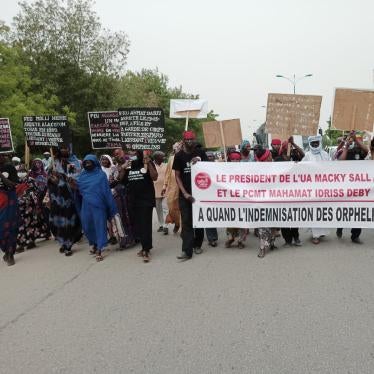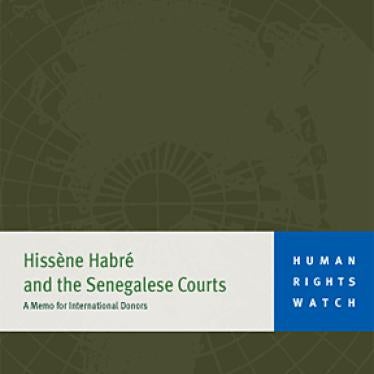A Belgian judge has indicted Hissene Habre, the former dictator of Chad, for large-scale human rights violations and issued an international warrant for his arrest, the Justice Ministry announced Thursday.
The arrest order has been served to Senegal, where Habre has lived in recent years under the surveillance of the local authorities. Belgium also has filed a formal request for Habre's extradition.
While these legal steps were taken 10 days ago, the ministry announced them on Thursday.
If Habre, 63, is handed over, he is expected to be tried by a Belgian court on charges of torture and other crimes against humanity. The ministry's statement said that Habre was wanted particularly in connection with the activities of the Chadian intelligence services, which conducted "collective and arbitrary arrests, mass murder and systematic torture of certain ethnic groups" during his 1982-1990 rule.
Human Rights Watch, one of several groups that have campaigned to bring him to justice, says that the exact number of the regime's victims is not known. But a 1992 Truth Commission accused the Habre regime of 40,000 political murders.
The move against Habre is the result of a four-year judicial investigation that began after a group of 21 Chadians living in Belgium filed a complaint under the country's "universal jurisdiction" laws. Although those laws were tightened in 2003, largely as a result of U.S pressure because of pending complaints against President George W. Bush and other officials, the case against Habre was already in motion and was allowed to proceed.
Human rights groups say a trial in Belgium appears to be the only possibility at this time. The International Criminal Court in The Hague cannot consider cases concerning activities before 2002, when its jurisdiction went into effect. Chad has never sought Habre's extradition.
The U.S. government once provided Habre with support and considerable military aid because Washington found him useful as a bulwark in its fight against Muammar el-Qaddafi in neighboring Libya.
But Habre's violent campaigns against his opponents eventually led to his overthrow.
Reed Brody of Human Rights Watch, who has advised Chadian victims, said that key evidence for the case against Habre will be the files of his political police, the DDS, which were recovered in 2001. They reveal how Habre ran the DDS and how it organized ethnic cleansing, Brody said.
Belgian investigators, including a judge, prosecutors and police officers, have made visits to Chad, taken testimony from witnesses and visited prisons and mass grave sites.
Belgian prosecutors have said previously that they have reason to believe the government of Senegal will hand over Habre. He is entitled to appeal any decision to extradite him to Belgium.


